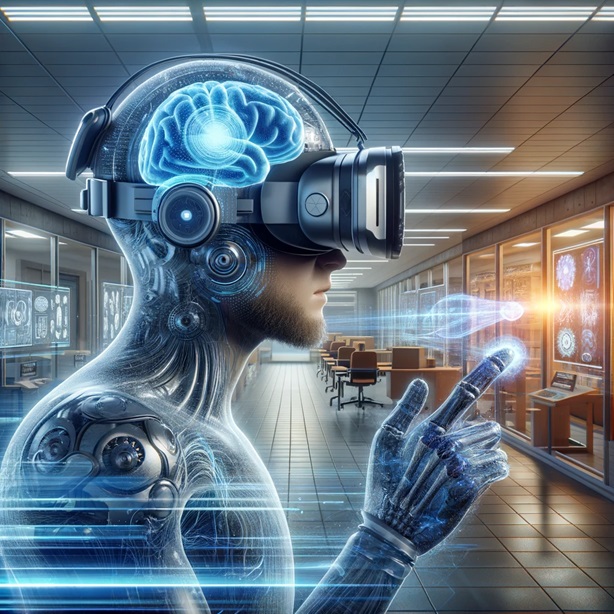Emerging Trends in Cognitive Enhancement
The digital age has ushered in groundbreaking tools for cognitive development, with Virtual Reality (VR) at the forefront of this technological wave. VR provides an immersive experience that is being harnessed to enhance cognitive abilities and rehabilitate brain function. By simulating real-world environments, VR allows for a high degree of control in brain training scenarios, creating experiences that are both engaging and therapeutically beneficial.
VR in Cognitive Rehabilitation
Cognitive rehabilitation, a therapy process designed to restore cognitive function after injury or illness, is being transformed through VR technology. VR's immersive nature facilitates the development of skills and the retraining of neural pathways by placing individuals in controlled, yet lifelike, interactive environments. This section delves into how VR is applied in cognitive rehabilitation, illustrating its benefits through recent studies and real-life applications.
Neuroplasticity and Virtual Environments
Neuroplasticity, the brain's ability to reorganize itself by forming new neural connections, is integral to cognitive rehabilitation. VR technologies have shown promise in promoting neuroplasticity by providing enriched environments for patients to practice and learn new skills. This part of the article discusses how VR is used to capitalize on the brain's plasticity, highlighting specific examples and therapeutic outcomes.
Enhancing Brain Health Through Immersive Training
Brain health is not solely the absence of disease but the presence of robust cognitive function. VR training programs are designed to improve attention, memory, spatial reasoning, and other cognitive functions. This section outlines how VR experiences are structured to target specific cognitive domains, discussing the current state of VR brain training programs and their effectiveness.
The Future of VR in Brain Health Interventions
As VR technology continues to evolve, so does its potential in cognitive therapy and brain health interventions. Looking ahead, this article examines the future implications of VR in treating cognitive decline, enhancing learning in educational settings, and expanding our understanding of brain-behavior relationships.
VR Accessibility and Implementation Challenges
Despite VR's vast potential, there are challenges to widespread implementation, including accessibility, costs, and the need for specialized equipment. This section addresses these challenges and explores potential solutionsmaking VR more accessible to different populations. Discussions include the development of more affordable VR headsets, user-friendly software, and adaptable systems that can be used in various healthcare settings.
Case Studies: VR's Real-World Impact
This section presents a collection of case studies demonstrating VR's impact in real-world brain training and rehabilitation scenarios. From stroke survivors regaining motor skills to military veterans addressing PTSD, these stories illustrate the tangible benefits of VR when applied to brain health.
User Experience and Ethical Considerations
With the rapid integration of VR into brain training, attention must also be given to the user experience and ethical considerations. This includes ensuring the safety and comfort of users, privacy concerns, and the ethical use of data collected through VR training programs. As VR becomes more embedded in healthcare and wellness industries, these considerations will become increasingly significant.
Collaborative Efforts Across Disciplines
The advancement of VR in brain training and rehabilitation is not a solitary endeavor but a collaborative effort across various disciplines. This final section discusses the synergy between neuroscientists, psychologists, software developers, and other professionals in creating VR content that is both scientifically sound and effective in enhancing cognitive function and brain health.
Conclusion
Virtual reality stands at the intersection of technology, neuroscience, and healthcare, offering new avenues for brain training and rehabilitation. Its immersive nature and capacity to simulate complex environments make it an ideal tool for fostering neuroplasticity and cognitive enhancement. As research progresses, VR is set to become a staple in cognitive therapeutics, blurring the lines between technology and the human experience for the betterment of brain health.
